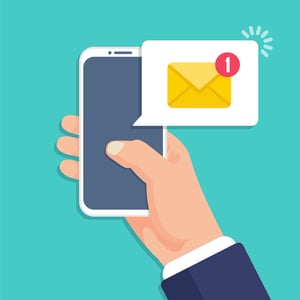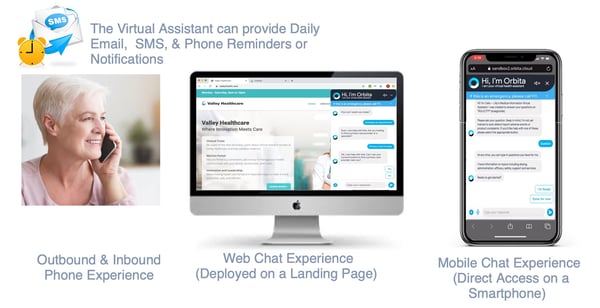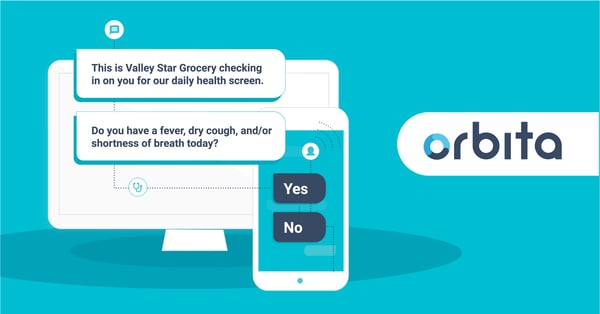
Notification from Orbita: How outgoing messages to patients can improve healthcare
Nowadays, the virtual opportunities to engage with entertainment, information, and other humans are endless. Our attention is pushed and pulled towards every ad and alert that meets our ears or eyes. While consumers grapple to prioritize information they are receiving, the challenge creators face is pushing agendas and messages through the clutter to be the top priority, without overwhelming users. A common method to initiate virtual engagement is a notification.
 Think about how you know when you get a new connection on LinkedIn. How about when an email arrives in your inbox? Or when it's payday and the check reaches your account? You get the gist.
Think about how you know when you get a new connection on LinkedIn. How about when an email arrives in your inbox? Or when it's payday and the check reaches your account? You get the gist. In the vast world of healthcare, one of the largest obstacles between patients and providers is communication. With more frequent and more accessible contact, HCPs could reduce a number of prevalent issues in patient care. With only about 50% of patients with chronic conditions adhering to their prescribed medication plan, the risk for complications and adverse events is quite high. With the average yearly rate for no-show patients hovering in the 20% range, time and money are wasted while the patient's health grows more at risk.
An outgoing message to patients through the proper channels and with the appropriate information, could help providers improve patient care and empower individuals to take control of their own health. The challenges then evolve into deciding which content to push out to patients, when, and through what channels.
Nudge theory refers to framing an outgoing message or notification in a way that directs or guides the receivers behavior towards a predicted action. The more targeted and relevant messages will likely trigger the most action. In the context of healthcare, this can significantly increase medication adherence and aid in reducing appointment no-shows. At Orbita, we have taken the nudge theory into account when developing our OrbitaCONNECT solution. This virtual assistant allows healthcare providers to engage, inform, and empower patients to take control of their own care journey through an array of channels.

The ready-made templates allow HCPs to deploy nudges for healthcare coaching, medication reminders, question answering and more. Through a cascading method of outreach, OrbitaCONNECT begins to interact with patients through the most effective channel, an SMS. If that fails, a phone call is sent out, then an email, and so on. This ensures the message is received in a timely and accessible manner, no matter the patient's preferred method of communication. For example, a kidney dialysis center relies on patients showing up for treatment in order to effectively care for them. Patient X is due for treatment in one week, but has not scheduled an appointment yet. An SMS can be pushed to their cell phone with a link to a chatbot where the dialysis center's scheduling platform can be easily accessed. From these chatbots, patients can engage with their providers' schedules, FAQs, and other helpful resources in their care journey.
This omni-channel outreach was designed with a drag and drop interface which allows HCPs to easily integrate the platform with pre-existing third party systems - no additional apps or websites needed. Orbita's advanced conversational AI technology is programmed to understand natural language queries. No matter the diction used to pose a question, the virtual assistant can provide the patient with the best answer for their needs.

This solution simplifies and improves the care journey for both providers and patients. Most importantly, it can be tailored and deployed on various campaigns initiated by HCPs - from COVID-19 symptom checking to mental health screenings.
These virtual assessments take advantage of Orbita's advanced chatbots and capitalize on patients' responses to nudges. Keep an eye out for our upcoming white paper which delves deeper into successful case studies of leveraging nudge theory in the design of our solutions at Orbita to improve communication, patient monitoring, and quality of care.
Want to learn more about how Orbita can help your virtual care and remote patient monitoring efforts? We'd love to hear from you.

